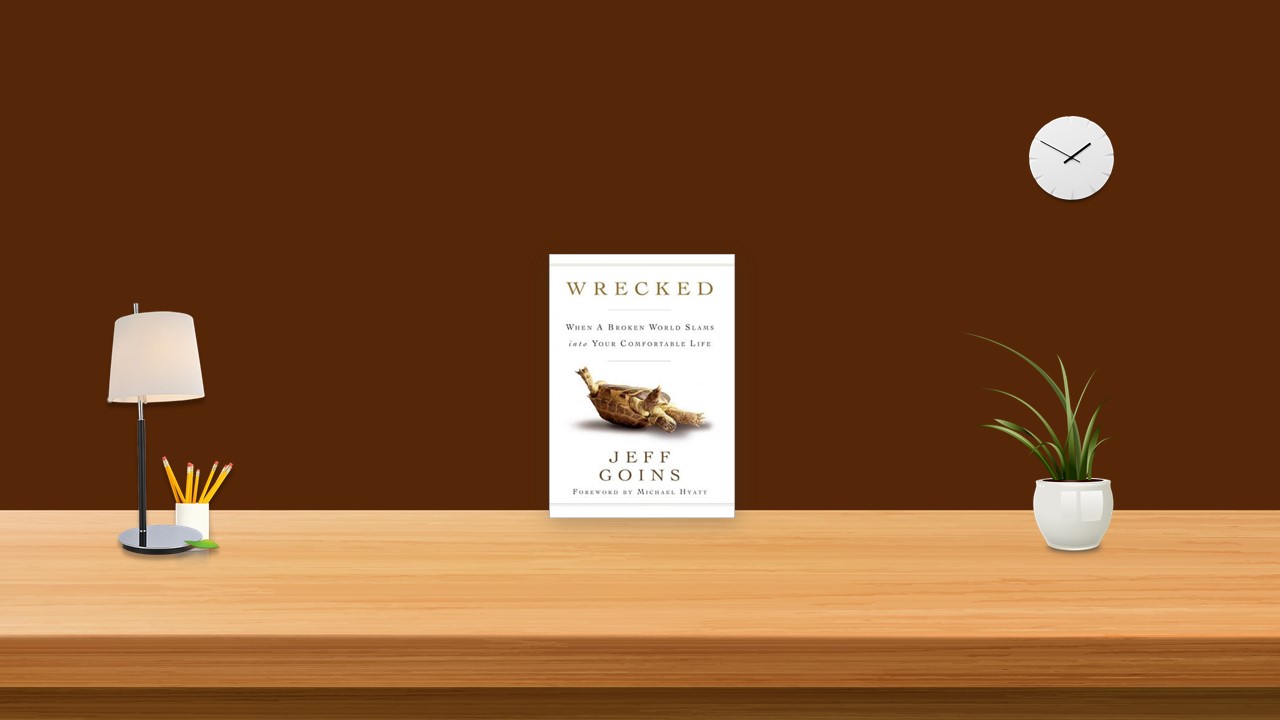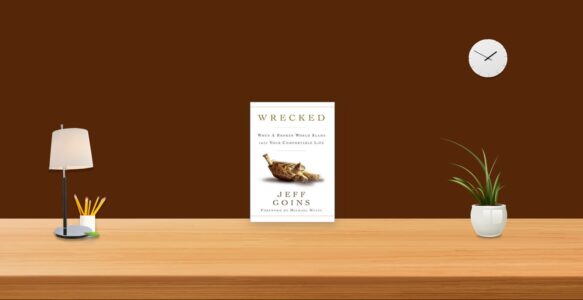You Must Get Wrecked
Ruined. Devastated. Undone. Their lives were forever changed, and there was no returning to how life used to be. Their paradigms had shifted. Their worldview was infected with a contagion that was spreading to every facet of their life. More than one person told me, “I can’t go back to who I was.”
There is something important about a life—full of moments that tear us apart and break our hearts and help us understand our purpose. Moments that inconvenience us. Moments for which we should be eternally grateful.
To be wrecked is to be disabused of the status quo.
It means to have a transformation that goes beyond mere words—to be introduced to another way of life, to follow in the footsteps of a teacher who is calling you through the eye of a needle. Often it involves being catalyzed by an encounter with pain. The process is horrible and ugly and completely gut-wrenching—and at the same time, beautiful. It is real and hard and true. Most of all, it is necessary.
Help Wanted: Come and Die
Unless a seed falls to the ground and dies, it remains a single seed. But if it does die, it multiplies.
This is the paradox of life. The more you give, the more you get. You find your life by losing it.
This is an important principle for living a wrecked life. The more generous you are to others, the more everyday blessings will present themselves in unexpected places. One friend said it like this: “The less stingy you are with the universe, the less stingy it will be with you.” This means more than karma. It’s about going above and beyond to be generous—as an act of gratitude for the grace we’ve received
Of course, this way of living isn’t new. It is, in fact, very old, and we are all familiar with it conceptually. But many of us struggle to live it out in reality. As a result, we often feel empty—never satisfied, always searching. Henry David Thoreau once said, “The mass of men lead lives of quiet desperation.” Perhaps the reason for this is that we got everything we wanted, and it still wasn’t enough.
You’ve been lied to.
You were told that if you worked hard enough, put enough hours in, and got good grades, you’d be happy. You’d finally get your reward, and then you could start really living. You could afford to be a little generous, tithing 10 percent to church and helping out the occasional friend down on his luck. But face it: something about this just feels wrong. Trust that feeling.
There is a longing in your heart, an emptiness in your soul waiting to be filled. This feeling is not an accident; it exists as a reminder that there is something more to life than what we can see. It’s that nagging sense that Morpheus put into words: “You’ve been living in a dream world …”
We must wake up. If we are going to find our callings, we must live intentionally and audaciously. And we must be generous. This choice is not an easy one, and it doesn’t come naturally, but it’s how we were meant to live.
When You Have to Walk Away
The worst part of being wrecked is facing a need and then having to walk away. It happens, even when we don’t want it to. Especially then. For one reason or another, we must sometimes pass the baton on to the next person God is calling to heal a wound. We must let go; we must leave what is comfortable and familiar and once again trust
This is not easy, this letting go. There is so much need and so much pain—so much suffering—that it seems self-centered to walk away from a need. But this isn’t about the need; it’s about humility. It’s about believing that there is more happening than we can see when we bring a cool cup of water to someone who is thirsty. It’s about having faith in a deeper narrative that underlies every compassionate act.
In other words, it’s easy to lose yourself in the pursuit of justice.
Nobody wants to tell you this. That this may cost you your soul. That it will hurt worse than you imagined and there will be all kinds of unresolved tensions. You never see a disclaimer at the bottom of those commercials with starving African children, saying, “Warning: Taking action may lead to serious mental health risks.” But it’s true. At least, in my experience and what I’ve seen in others. And no one wants to talk about that—how justice can consume you (not in a good way), how it keeps you up at night, how it becomes an obsession.
Going Where You Don’t Want to Go
When we are young, the world is our oyster. We travel, go on adventures, discover a world we never knew. But life doesn’t continue like this forever—not for most of us. We grow up, buy houses, get bosses, and pay bills. Ultimately, we go where we don’t want to go. We go where we must, to the places we’re called. Although the adolescent within rebels, the adult knows it’s right.
When you get older, life sometimes just sort of happens to you. Without your permission or realization, you may end up in a position where you don’t have the freedom you once had. You may find yourself locked into commitments you can’t get out of. When you get older, people depend on you; you have real responsibility.
So while you’re young, do what you want. Because you won’t always be able to. You won’t always be able to be so carefree.
Wrecking Others
The hardest part of getting wrecked is what comes after. What happens when the trip is over, the memories fade, and life begins to feel normal again. Things will slow down, priorities will shift, and you’ll question yourself, wondering if you’ve become a sellout. You’ll get married, buy a house, have a few kids. Or you’ll work a nine-to-five, stop volunteering, and worry you’ve lost your edge. You’ll look back at your early years with nostalgia, read through old journals and scrapbooks with regret. And you’ll wonder what happened.
Take heart. This is your biggest adventure yet, if you seize it. You have a chance—the most important opportunity of your life, in fact—to bring people along on the journey. You get to wreck others.
After being wrecked, a lot of people struggle with boredom. Their season of adventure ends, and they live in the past or, worse, vicariously through movies and others’ stories. But there’s an alternative: you can help other people find their purpose, just like you found yours. You can help friends, family members, and total strangers get wrecked. In helping others find their way, you may find more of yours—at least, the next part of the journey.
You are leaving a legacy.
Whatever you are doing, you are building something that will last. It may be a legacy of action or inaction. It’s happening right now. You may not be able to see it, but it’s there. You can embrace this or ignore it. But you are still leaving something behind. For your friends. Maybe your children. And perfect strangers who may never know what you did (or didn’t do).
Advice? Go for broke. Choose the hard option. Do what comfort screams “no” to—what will ultimately shape you and help others. It may be counterintuitive or against what you’ve been taught, but do it anyway. Step into inconvenience. Welcome the anxiety that comes with doing the right choice. And be wrecked once again.


